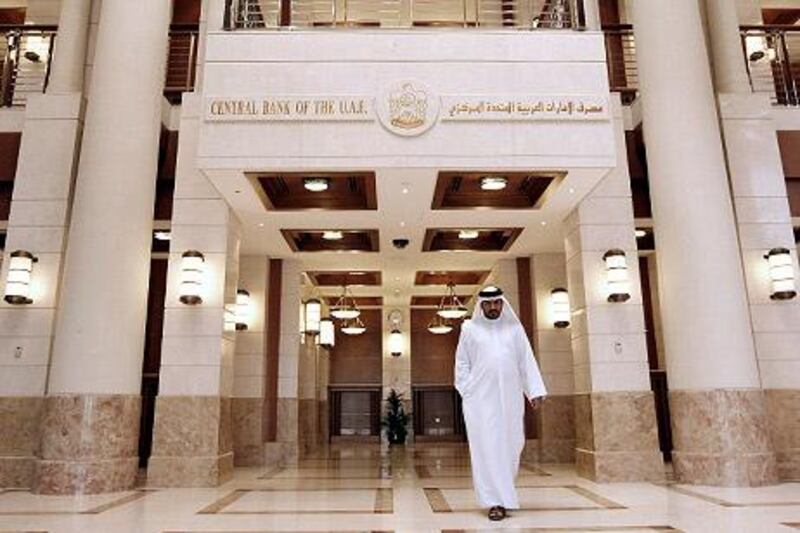Two of the UAE's biggest banks are quietly suggesting the federal Government should establish a fund to buy up debts they are no longer allowed to hold under controversial new lending rules.
In April, the Central Bank announced a limit on how much UAE banks could lend to governments and their commercial entities and gave the lenders six months to comply. The deadline to meet the new rules passed on Sunday.
Senior sources, who did not want to be identified, at the banks based in Dubai, are privately briefing in support of a fund to absorb their excess exposures to government entities at cost instead of at fire-sale prices to other banks and hedge funds.
"It would help if the Federal Government comes up with a certain financial tool wherein they can take those debts," said a source at the first bank. "That would be one way that the Government could help out."
A source at the second bank echoed that sentiment. "At some point the Government or the Central Bank will have to take people's residue, their leftovers," the source said when asked what the likely outcome would be, with little public comment from the Central Bank and nobody ready to take the initiative to start selling. "No bank will take it. Banks are looking to fix up and clear their own books."
Banks including Emirates NBD and National Bank of Abu Dhabi said they were in breach of the regulations but had not received guidance from the Central Bank on how to comply. Lenders fear losing money from a forced sale of billions of dollars worth of government debt, which is also often among their strongest capital.
In the wake of a rare public debate over how to implement new lending rules, the Central Bank has refused to budge, denying extensions or waivers to local lenders - despite the deadline already having passed.
The Central Bank could not be reached for comment yesterday. The Emirates Banks Association, which is leading negotiations with the Central Bank, declined to comment. If it were implemented, such a fund would take the form of a holding bank, and other lenders could conceivably rush to offload restructured finances or debt from companies with dubious ability to repay, said Said Hirsh, an economist at Capital Economics.
"What are they going to put up for sale? The [loans] they think they can still make money on, they're unlikely to want to sell," he said.
It is unlikely the federal Government will agree to such a measure but bailout funds from Arabian Gulf central banks have become more common in the wake of the global financial crisis, Mr Hirsh added.
They are usually used to protect banks from their past lending errors - Qatar bought all its banks' bad debts outright after the financial crisis struck - rather than help implement central bank policy measures, he added.
Overreliance on government lending resulted in a crisis at Dubai World and then a cascading effect on the financial system, requiring billions of dirhams in liquidity injections from the Central Bank and the federal Ministry of Finance.
Government recapitalisation efforts for banks including Abu Dhabi Commercial Bank and Dubai Bank followed last year.
Prior to the announcement of the new lending rules, the IMF said it would welcome limits on government exposures similar to those later implemented by the Central Bank.
The backroom negotiating by banks comes as lobbying enters the UAE's banking landscape in a big way.
The Securities and Commodities Authority has taken increasing fire from the financial services sector over a parallel regulatory drive affecting the fund industry.
There are signs banks are attempting to coordinate their actions in an effort to force action from the Central Bank in other areas.
On Sunday, Jeff Singer, the chief executive of the Dubai International Financial Centre Authority, urged banks to push the Central Bank to accelerate the pace of reforms allowing the UAE to emerge as a trading hub for the Chinese yuan.
Signs are also emerging of division among the banks lobbying for an easing of the rules.
A senior source at a third UAE bank, who also wished to remain anonymous, expressed frustration at the leaks taking place to the media.





